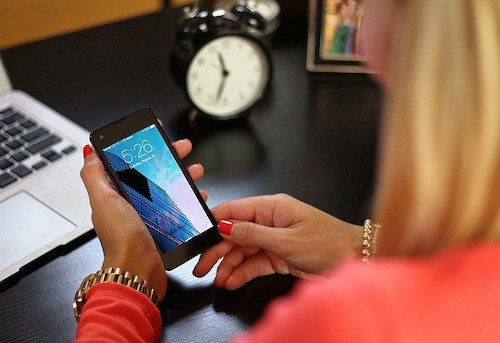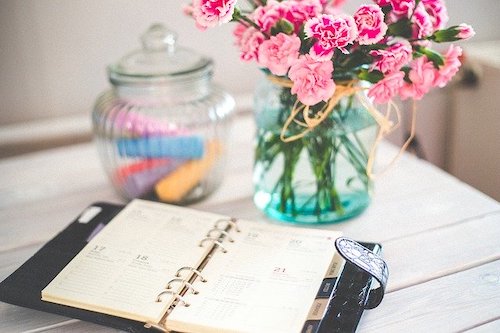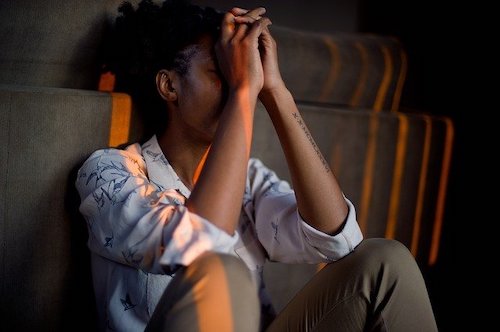2020’s pandemic has swept into all of our lives, impacting homes and economies alike. While we are all focused on keeping physically healthy, a silent mental health crisis is developing.
Events like this have the function of a reset button. They put everything on pause, slow life down and force systems to rebuild from scratch. That’s true of companies, workplaces and civic life, but also of our own internal worlds.In my work as a psychotherapist I often see signs of burnout in my patients. A classic is the person who gets ill as soon as they take a vacation. They are running day to day on adrenaline and caffeine and their bodies crash as soon as they take a break. This is a warning sign that they are not living sustainably.
This time it’s Coronavirus rather than a vacation that has put the brakes on. Staying mentally well in the face of such a threat is incredibly difficult. We are all experiencing the same storm but from very different places.
Some people are facing the most challenging professional period of their lives, caring for or working with patients ill with this disease. Companies are adjusting to completely new ways of working, and some of you will be having to adapt within this system.
Many millions of us are working from home and getting to grips with new tech and software. It’s a period of rapid growth for many of us, whether we wanted it or not.
Others have seen their work or professional life ground to a halt in a sudden and startling way. There is economic uncertainty and the possibility of a worldwide recession. It’s important to not underestimate the impact of this on our psyche and wellbeing.

There are whole industries that have grown from the change management field. This is because we recognise that when a company or team restructures it can have a profound impact on everyone involved. And now, the whole world just restructured, with everyone we know and love being impacted. We are not just dealing with our own journey, but everyone else’s as well.
So how do we care for ourselves in the midst of a world event?
Firstly, it’s about kindness: to yourself and to others.
Nothing is more important just now than the concept of ‘good enough.’
Now is not the time to set lofty goals and put pressure on yourself to achieve everything on the ambition list. All you have to do is function. Your work should be good enough to pass, not get A*s. The same is true of the cooking, the personal admin, the parenting.
Will it do? Excellent, well done, you’re smashing it.
There is a strong biological argument for this. When there’s an external threat, our brains go into survival mode. Our body chemistry is forcing us to focus on the priorities of food, shelter and safety. As irrational as it looks, there is a chemical reason for people feeling compelled to buy a hundred toilet rolls and every bag of flour in sight. It’s a primal focus on bodily functions and body security.

Once we calm down and have a cup of tea (or six) we can think a little more rationally and make more realistic plans. There are some frameworks we can put in place that can help us feel more secure and can help our body chemistry settle.
Firstly, routine.
Finding a new routine for yourself will help to normalise the situation more quickly.
Lean into the experience, follow the wave for as long as it goes. An interesting exercise is watching the news and seeing all the politicians and commentators who are most stressed about “end dates” and “back to normal.” Those are the ones still operating in an adrenaline state. The adaptable souls will have found ways to achieve everything they need to without having to reset to ‘normal’ to do it.
If you are in lockdown with children, then routine is vital. Don’t worry too much about the achievement side of things. Your kids can catch up and schools will have plans in place to revise. It’s your family’s wellbeing that’s important right now. Set this routine around what works for you, rather than trying to replicate what was normal before. Do you prefer to work for an hour and then do the normal breakfast and morning routine? Fine, do that! Just try and make it consistent. It really does help.
In quieter times we often end up reviewing things and making decisions to change direction. It’s not uncommon for people to return from a vacation and hand in their notice at work, or end a relationship. Reflection time allows us to identify what is working and what we want moving forwards.

At the end of this there will be a slew of marriages and babies, and likely an increase in divorces too. That’s ok; it’s not Covid-19 breaking or creating families, it’s the reflection time that’s brought forward the decision. We tend to be brutally efficient in a crisis, even when it comes to the emotional stuff.
So use this reflection time well. Keep notes and sit quietly with your thoughts often. The only goals that matter are those that increase wellbeing.
• Which friends and family members do you need to reach out and connect with?
• What and who have been positive influences on your life and health?
• What isn’t working for you anymore?
• Brutally, what needs to go?
If you are using lockdown time to learn a new skill or hobby or get fit, then make sure it’s something you are enjoying and is giving you a sense of well-being. Jettison anything that feels like a pressure or a stress. There will be other times to tackle those goals.
Likewise, try to get rid of anything that’s rooted in self-judgement or self-blame. When the world outside seems to be falling apart, it’s easy to mirror that belief internally: “I’m a mess,” “I’m not good enough.”
We really can’t be objective about ourselves when our safety is under threat. We can only focus on enhancing day to day experience. Sometimes organising the sock drawer can be as satisfying as starting a new career. Take pleasure in the small victories and don’t feel guilty if there are elements of our new reality you are enjoying. We are complex beings and more than capable of being able to show concern for others, while enjoying working in our pyjamas.
Holding emotional ambivalence, where we can be both scared and satisfied, without feeling the need to choose one, is the route to emotional maturity.
Governments are telling us to stay safe and healthy; just make sure your mental health is also part of that thought process so we can all emerge on the other side healthy and strong. Our travel and holiday plans may be stalled and our families may be an ocean away, but our health is firmly in our own hands.

